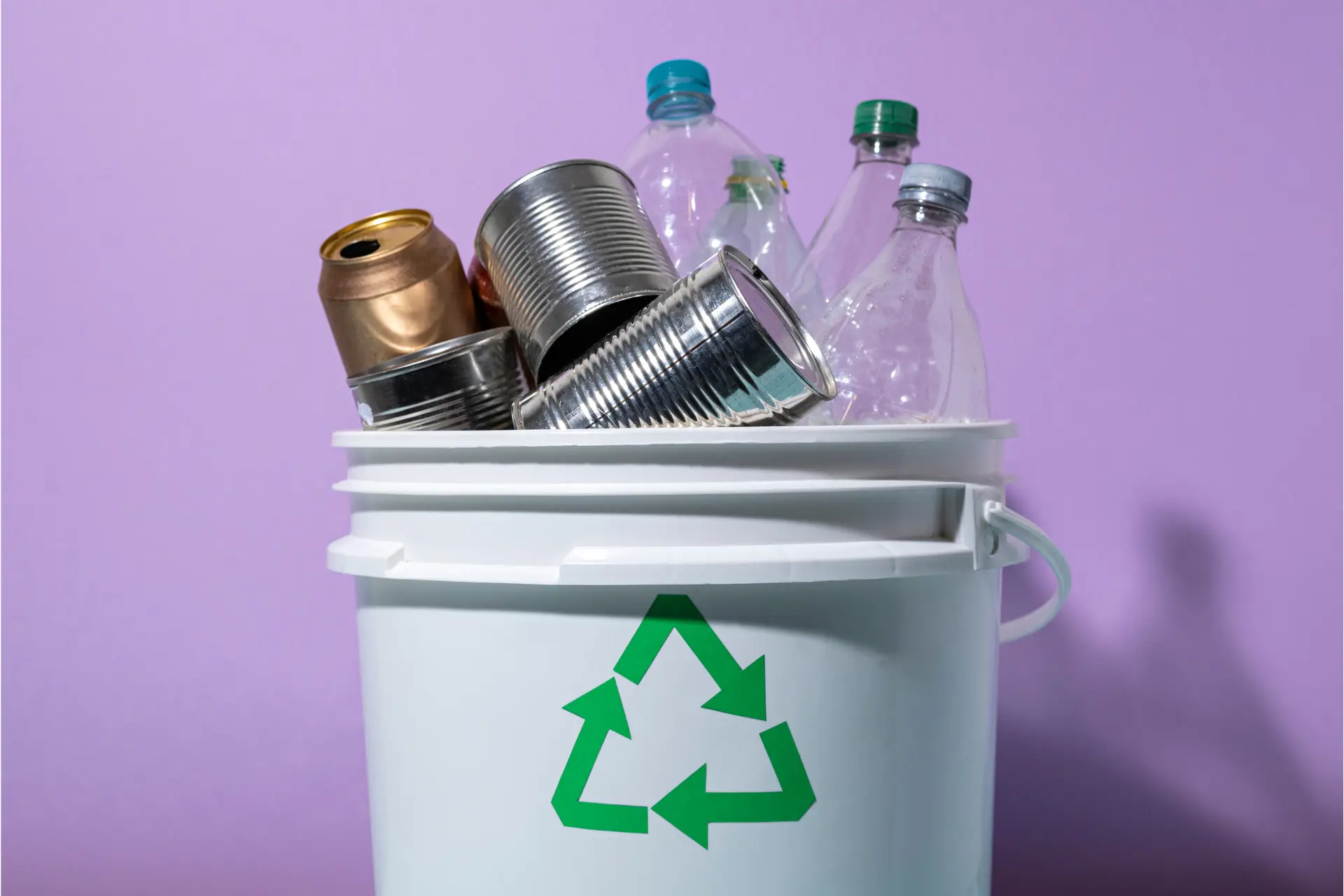Introduction to EPR Tax
Extended Producer Responsibility (EPR) is one of the most significant regulatory shifts to affect packaging and product compliance in recent years. Across Europe and the UK, governments are introducing stricter rules that make businesses financially responsible for the waste they generate. The EPR tax is at the heart of this transformation.
For many businesses, EPR tax is more than just another environmental levy. It represents a fundamental change in accountability, shifting the cost of waste management away from taxpayers and onto producers. Companies now face not only the challenge of paying these taxes but also the task of collecting, analysing, and reporting data at a level of detail that was rarely required before.
Yet, despite its reputation as a burden, EPR tax also offers opportunities. It encourages innovation in packaging design, incentivises the use of sustainable materials, and rewards companies that invest in circular practices. By tackling EPR proactively, businesses can reduce costs, strengthen their reputations, and future-proof their operations.
EPR is a framework that places responsibility for managing a product’s end of life, including collection, recycling, and disposal, on the producer. In packaging, this means businesses must pay fees based on the materials and formats they place on the market. The idea is simple: those who create packaging should bear the cost of dealing with its waste.
EPR tax also plays a central role in building a circular economy. By linking fees to the environmental impact of packaging, governments encourage recyclable, reusable, and compostable packaging. It is a mechanism that reduces waste at the source while funding better recycling systems.
How EPR Tax Works
EPR tax applies to producers, importers, and brand owners. If your company manufactures goods, imports them for sale, or sells under a private label, you are responsible. Retailers may also fall under the scope if they put own-label products onto the market.
The tax is generally calculated based on weight, material type, and recyclability. Heavier packaging means higher fees, and plastics often incur greater costs than glass or cardboard. Packaging that is difficult to recycle is penalised, while materials with recycled content are rewarded in some countries through eco-modulation.
From plastic bottles to cardboard boxes, nearly all packaging is affected. Single-use items, such as disposable trays and plastic films, are particularly targeted. Even secondary packaging, like protective wrapping and shipping cartons, can fall under reporting requirements.
Rules vary widely across Europe. Germany requires businesses to register and report all packaging placed on the market, while France applies eco-modulated fees. The UK scheme, launched in 2023, obliges larger businesses to provide detailed reports and will expand to cover full waste management costs in 2025. For companies trading across borders, these differences create a complex compliance landscape.
The Cost of EPR Tax for Businesses
The most visible impact is financial. Depending on packaging volumes and materials, liabilities can run into millions for larger organisations. Small businesses may be exempt, but most mid-sized and large firms will be affected.
Operationally, EPR requires detailed visibility into packaging supply chains. Companies must know what materials are used, where they come from, and how they can be recycled. This demands collaboration with suppliers, manufacturers, and logistics providers.
Non-compliance risks reputational damage as well as financial penalties. Regulators are increasingly naming companies that fail to comply, while consumers and investors expect evidence of sustainable practices.
There are opportunities too. Businesses that redesign packaging to reduce weight, eliminate unnecessary materials, or adopt recyclable alternatives often lower their tax burden. These changes can also cut costs, improve efficiency, and boost environmental credentials.
The Compliance Challenges
Keeping pace with EPR rules is one of the greatest hurdles. Regulations differ by country, and updates are frequent. What works in one market may not be acceptable in another.
Data collection is another challenge. Companies must report packaging in unprecedented detail, covering weight, recyclability, and labelling. Without digital systems, this can quickly become overwhelming.
For businesses operating internationally, packaging specifications must be aligned with multiple sets of rules simultaneously. A single change can trigger compliance obligations in several markets.
Finally, many companies still rely on fragmented spreadsheets and manual processes. Without centralised systems, errors multiply and compliance risks grow.
The Packaging Regulations You Must Consider
Several types of regulation affect packaging compliance. Food, pharmaceuticals, and hazardous goods each have strict packaging standards to ensure safety and quality. Labelling rules are extensive, covering everything from nutrition facts to recycling symbols, and mistakes can result in fines or recalls.
Environmental requirements are also tightening, with many countries setting minimum levels of recyclability or recycled content. Transportation rules, particularly for hazardous or fragile goods, add another layer of complexity.
EPR tax ties into all these regulations, creating a network of obligations that businesses must manage carefully.
How to Stay Ahead of EPR Tax
Businesses can reduce risk by creating formal compliance workflows, ensuring packaging design, approval, and reporting are tracked and documented.
Supply chains must also be audited. Accurate data from suppliers is essential to avoid errors in reporting.
Investing in digital tools is now critical. Manual spreadsheets are no longer sufficient to meet the data demands of EPR. Platforms such as 4Pack make it possible to centralise information, automate processes, and report with confidence.
Finally, proactive monitoring of regulatory changes is key. Businesses that prepare early avoid last-minute scrambles when new requirements are introduced.
How 4Pack Simplifies Compliance
4Pack is designed to take the complexity out of EPR compliance. It provides a centralised data repository where all packaging information is stored and managed, ensuring consistency across the organisation.
Automated workflows guide teams through compliance steps, ensuring no process is missed. Every change is logged, creating a full audit trail that satisfies regulators.
4Pack also integrates seamlessly with ERP and PLM systems, meaning compliance management works alongside existing business processes rather than against them.
Perhaps most importantly, 4Pack includes built-in regulatory intelligence. Businesses receive real-time updates on packaging rules across markets, significantly reducing the risk of non-compliance.
Why 4Pack Helps Reduce Your EPR Tax Burden
By providing accurate, transparent data, 4Pack helps businesses avoid regulatory breaches and costly fines. Its centralised oversight allows companies to act quickly when laws change, and its integration features reduce duplication of work across different teams and countries.
The result is smoother operations, lower risk, and greater trust from stakeholders, including regulators, investors, and consumers. For many businesses, adopting 4Pack is the difference between struggling with EPR tax and turning compliance into a competitive advantage.
Book a Demo With 4Pack
The most effective way to see how 4Pack can simplify EPR compliance is to experience it directly.
Our platform combines regulatory intelligence, data management, and automation in one easy-to-use system. A demo will show you the dashboards, workflows, and integration tools that make compliance less of a burden and more of an opportunity.
Book your demo today and take the first step towards smarter compliance and reduced EPR tax costs.
Summary
EPR tax is here to stay. While it adds financial and operational challenges, it also drives packaging innovation and greater sustainability. Businesses that embrace compliance strategically can reduce costs, improve efficiency, and strengthen their reputations.
With 4Pack, companies can simplify compliance, gain visibility, and turn EPR tax from a burden into a business advantage. The future of packaging regulation is complex, but with the right tools, it is manageable.



